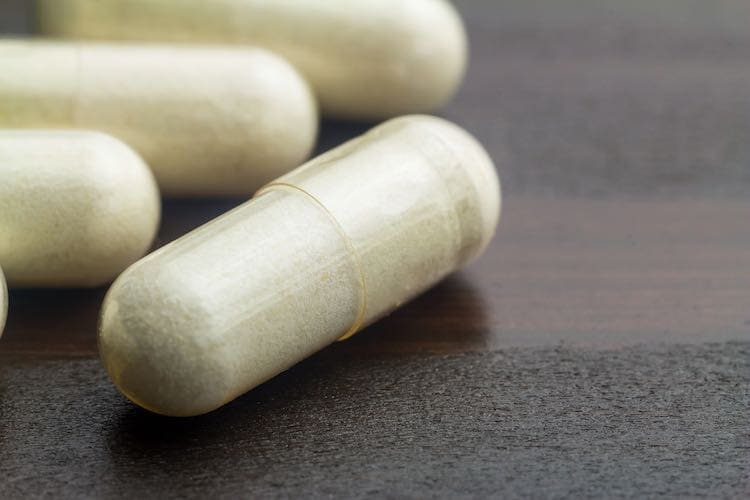What are glucosamine and chondroitin?
Glucosamine and chondroitin both occur naturally in the body and appear to be involved in the formation and repair of cartilage. Cartilage is connective tissue found in several places in the body. On the ends of bones, it helps the smooth movement of your joints. In osteoarthritis, cartilage deteriorates and is inflamed.
Glucosamine is a sugar and is one of the building blocks of cartilage. Chondroitin is also found in cartilage and is thought to make cartilage more spongy and healthy by increasing the flow of water and nutrients into the cartilage.
Glucosamine and chondroitin, taken either on their own or in combination, have been widely promoted as dietary supplements for osteoarthritis. For many years they have been used as veterinary products to treat arthritis in animals, and have become popular in recent times due to widespread publicity.
How might they help arthritis?
Taking glucosamine or chondroitin as supplements is believed to improve the formation of substances in the cartilage that are lost in the initial biochemical changes associated with osteoarthritis.
What is in the supplements?
The glucosamine found in supplements is extracted from the shells of crustaceans (shellfish) or produced from vegetable matter. Chondroitin is usually derived from cow or shark products. Anyone with a shellfish allergy should not take glucosamine supplements unless they are sure that they are safe for them.
- Glucosamine is available in many forms, including glucosamine hydrochloride and glucosamine sulfate.
- Chondroitin is available as chondroitin sulfate.
How effective are they for arthritis?
While early trials evaluating glucosamine and chondroitin for the treatment of osteoarthritis showed positive effects, the beneficial effects may have been exaggerated because of poor design in some cases and the fact that studies with negative effects are less likely to be reported. Some earlier studies were also sponsored by the product manufacturers and may have shown bias.
Since then, studies and meta-analyses (which combine results from multiple studies) have not been positive.
Evidence for glucosamine
In the case of glucosamine, recent 2019 guidelines from the American College of Rheumatology strongly recommend against using glucosamine for osteoarthritis of the hand, knee or hip. The guidelines say that the weight of evidence indicates a lack of effectiveness and large placebo effects (beneficial effects produced by a person’s belief in the treatment).
The Australian Rheumatology Association has also been reported as advising there is no evidence for glucosamine being helpful in osteoarthritis and there is the potential for harms from allergic reactions.
Arthritis Australia is currently reviewing its guidelines on glucosamine.
The Royal Australian College of General Practitioners (RACGP) advises that GPs should not offer glucosamine or chondroitin to people with knee or hip osteoarthritis as the quality of any evidence is very low or low.
Evidence for chondroitin
The RACGP also does not support the use of chondroitin in knee or hip osteoarthritis, as the quality of the evidence is very low.
Chondroitin is not recommended for osteoarthritis of the knee or hip by the American College of Rheumatology in its latest guidelines, and that includes combination products containing both glucosamine and chondroitin. The guidelines conditionally recommend chondroitin for use in osteoarthritis of the hand. This is based on one trial that showed chondroitin sulfate was effective against pain in osteoarthritis of the hand.
Glucosamine – warnings and side effects
Because glucosamine may be made from crustacean shells, those who have shellfish or seafood allergy should consult their doctor before taking it.
An analysis of 10 years of Australian adverse drug reaction data showed that almost three-quarters of the reactions to glucosamine and chondroitin products involved hypersensitivity reactions, some of which were severe. In Australia, under new medicine label rules, products must declare if they are derived from or contain crustacea or crustacean products and fish, among other allergens. However, as manufacturers have been given 4 years to comply with the new rules, it is wise to check with your doctor or pharmacist.
Glucosamine is an amino sugar; therefore concerns have been raised that it may affect blood sugar levels and contribute to insulin resistance and that it should be taken with caution by people with diabetes. However, these concerns have not been borne out by recent studies.
People taking blood-thinning medicines, such as warfarin, should also talk to their doctor before taking glucosamine, as it may increase the risk of bleeding. Glucosamine may also cause side effects such as gastrointestinal upsets, sleepiness, headaches or skin reactions in some people.
Chondroitin – warnings and side effects
People taking blood-thinning medicines, such as warfarin, should seek advice whether chondroitin is safe for them, as it may increase the risk of bleeding. Chondroitin may also occasionally cause stomach upset.
It is important that you check with your doctor before using dietary supplements as they may interact with other medicines you may be taking and there is also the potential for allergic reactions.
Do I need a prescription for glucosamine or chondroitin?
In Australia, both glucosamine and chondroitin are available as over-the-counter supplements. In some countries, a prescription is needed for these products.
Products containing chondroitin and glucosamine products come under the ‘listed’ category on the Australian Register of Therapeutic Goods. This means that they are considered ‘lower risk’ ingredients and do not have to be tested with regard to effectiveness. However, note the warnings above – they may not be safe for you. Your doctor or pharmacist will be able to advise you.

